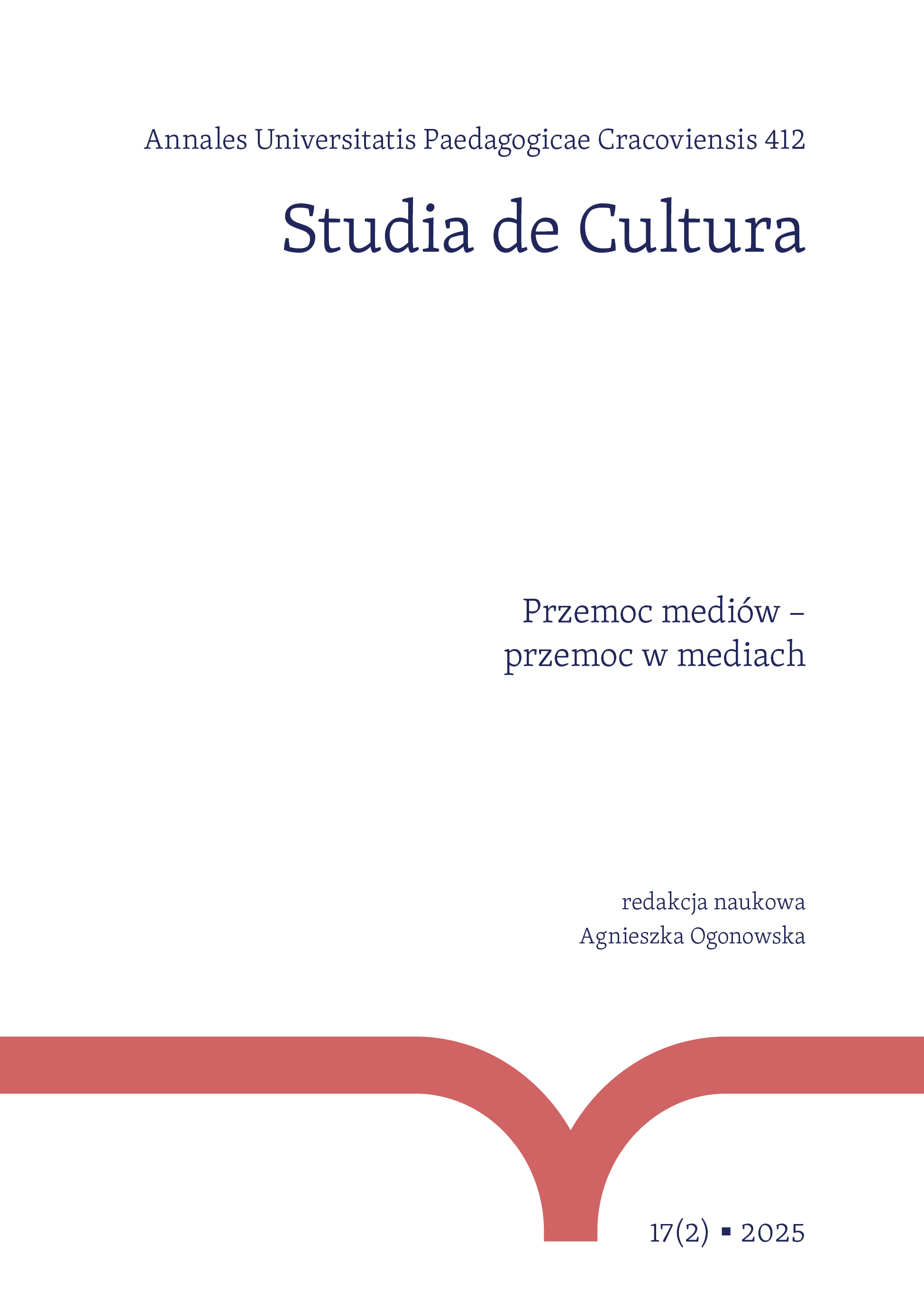Abstract
The article addresses the issue of cyberbullying towards Polish Muslim women, who experience increased attacks due to their religion. The text presents the results of a survey and in- depth interviews with Polish Muslim women. The analysis aimed to examine how Muslim women relate to the cyberbullying they experience. Does it influence their decisions to engage in online activity or their religiosity? And how do Muslim women see the possibility of changing this unfavourable situation?
References
Borkowska Anna. 2023. Cyberprzemoc, włącz blokadę na nękanie. Poradnik dla rodziców. Warszawa.
View in Google Scholar
Grajek Mateusz et al. 2013. “Cyberprzemoc wśród małoletnich internautów, świadomość, występowanie i zapobieganie.” Nauczyciel i Szkoła no. 1(53). 201–211. https://bazhum.muzhp.pl/media/texts/nauczyciel-i-szkoa/2013-tom-1-53/nauczyciel_i_szkola-r2013-t1_53-s201-211.pdf(access: 1.12.2024).
View in Google Scholar
Feliksiak Michał. 2019. “Postawy wobec islamu i muzułmanów.” Komunikat z badań. CBOS nr 148. Warszawa. https://www.cbos.pl/SPISKOM.POL/2019/K_148_19.PDF (access: 1.12.2024).
View in Google Scholar
Groszkowska Kamila. 2022. „Cyberprzemoc.” Infos no. 1(293). https://orka.sejm.gov.pl/WydBAS.nsf/0/AF7C4E154156DC27C12587DB0032DA66/$file/Infos_293.pdf (access: 1.12.2024).
View in Google Scholar
Kozinets Robert V. 2015. Netnography Redefined. London.
View in Google Scholar
Lisowska- Magdziarz Małgorzata. 2018. “Medialne narracje tożsamościowe i stosunek do Innego – problem społeczny i dylemat badawczy.” Media Biznes Kultura no. 1(4). 47–52. https://doi.org/10.4467/25442554.MBK.18.004.9283 (access: 1.12.2024).
View in Google Scholar
Pilch Tadeusz, Bauman Teresa. 2010. Zasady badań pedagogicznych. Strategie ilościowe i jakościowe. Warszawa.
View in Google Scholar
Trzaskowski Paweł. 2023. Hejt w komentarzach internetowych. Ridero.
View in Google Scholar
Van Dijk Teun A. Badania nad dyskursem. In: Dyskurs jako struktura i proces. Van Dijk
View in Google Scholar
Teum A. (ed.). Grzegorz Grochowski (transl.). Warszawa. 9–44.
View in Google Scholar
Wojtasik Łukasz. 2009. “Przemoc rówieśnicza z użyciem elektroniki, wprowadzenie do problematyki.” Dziecko Krzywdzone. Teoria, badania, praktyka vol. 8(1). 7–11. https://dzieckokrzywdzone.fdds.pl/index.php/DK/article/view/724/578 (access: 1.12.2024).
View in Google Scholar
Wójcik Szymon. 2017. “Zagrożenia dzieci i młodzieży w Internecie,” Dziecko Krzywdzone. Teoria, badania, praktyka vol. 16(1). 270–287. https://dzieckokrzywdzone.fdds.pl/index.php/DK/article/view/586/449 (access: 1.12.2024).
View in Google Scholar
Zamojska Eva. 2013. “Inny jako obcy. Imigranci w polskim dyskursie publicznym i edukacyjnym.” Studia Edukacyjne no. 28. 191–207.
View in Google Scholar
https://www.theculturefactor.com/country-comparison-tool?countries=poland (access: 1.12.2024).
View in Google Scholar

This work is licensed under a Creative Commons Attribution-NonCommercial 4.0 International License.
Copyright (c) 2025 Annales Universitatis Paedagogicae Cracoviensis. Studia de Cultura

